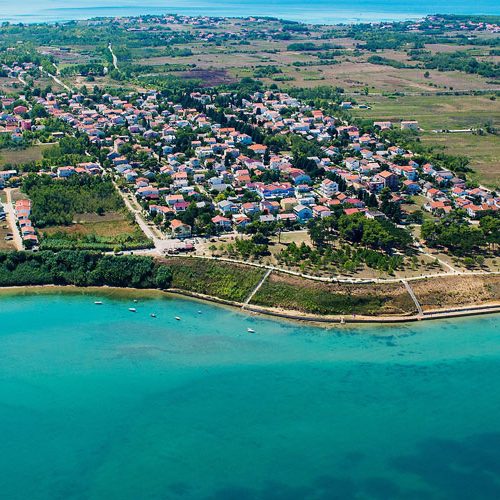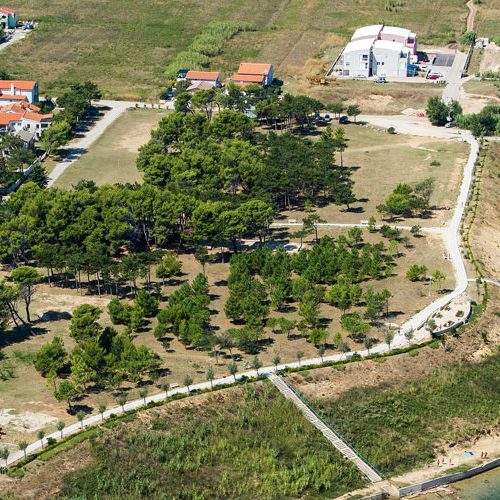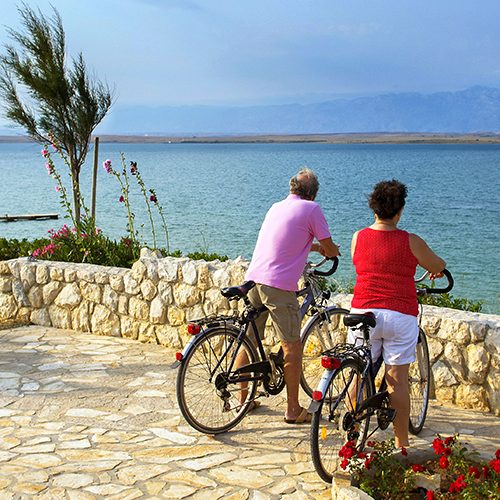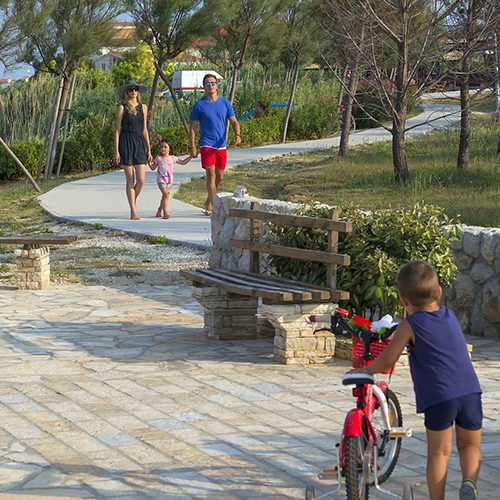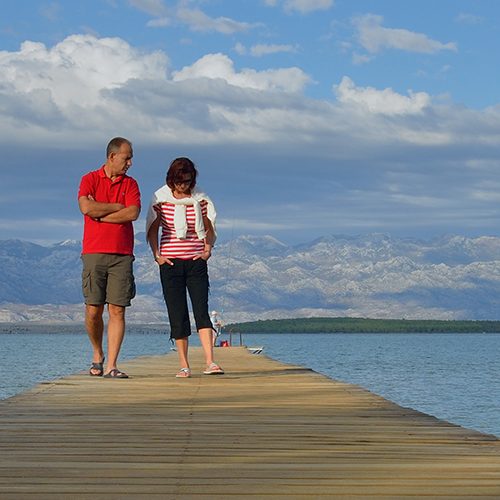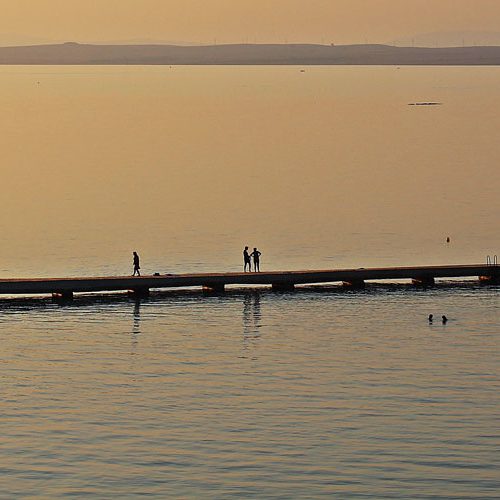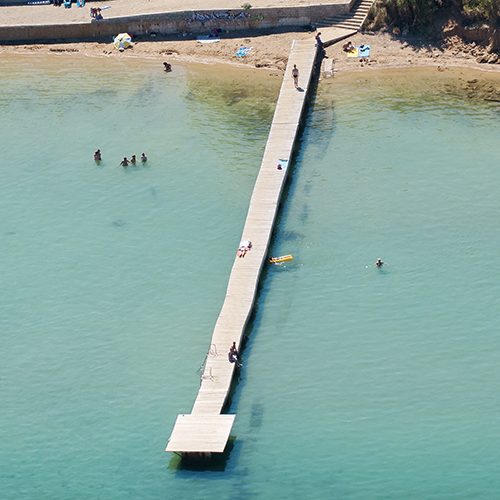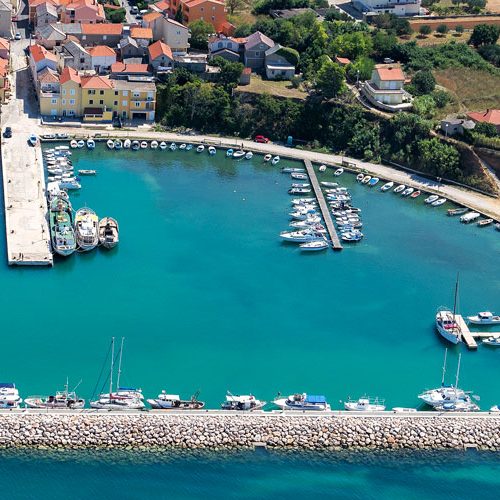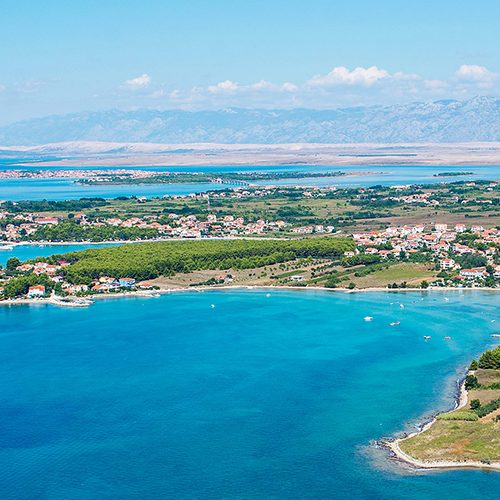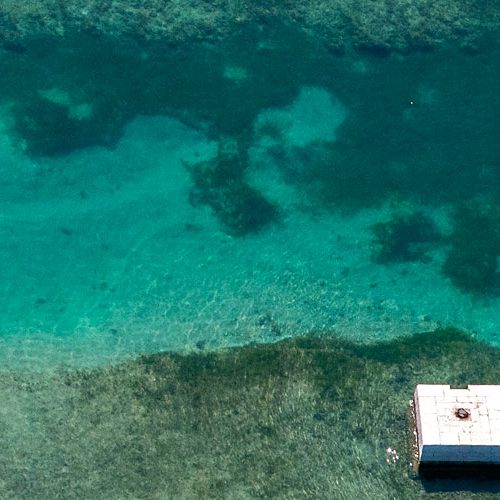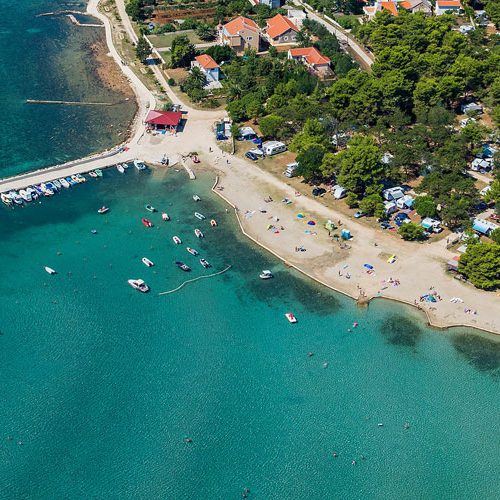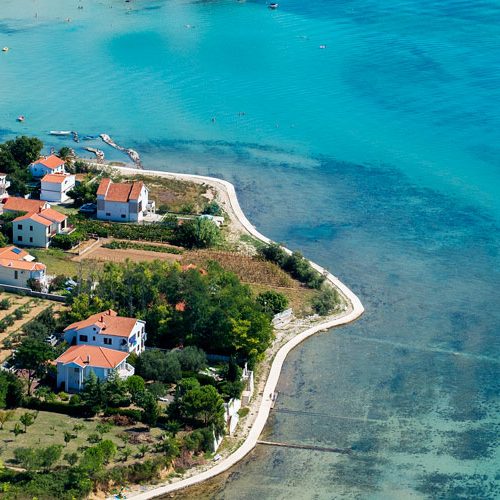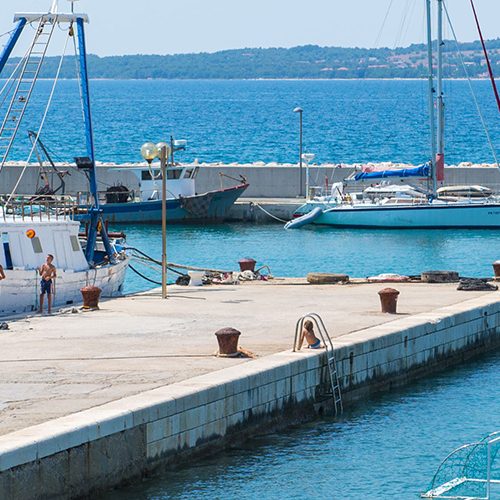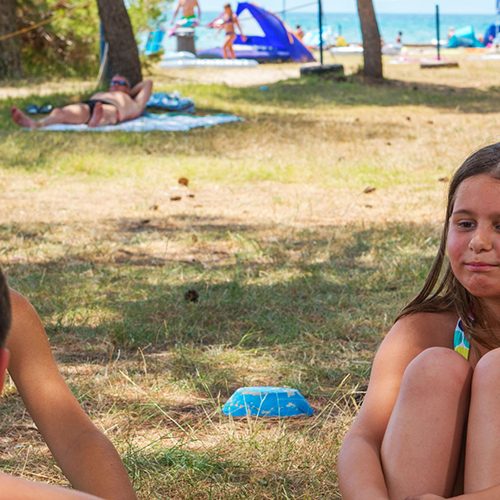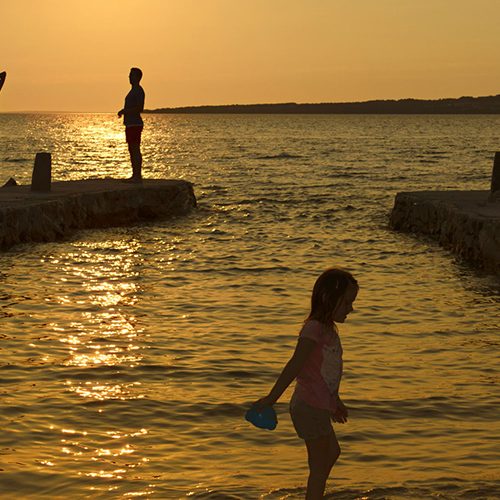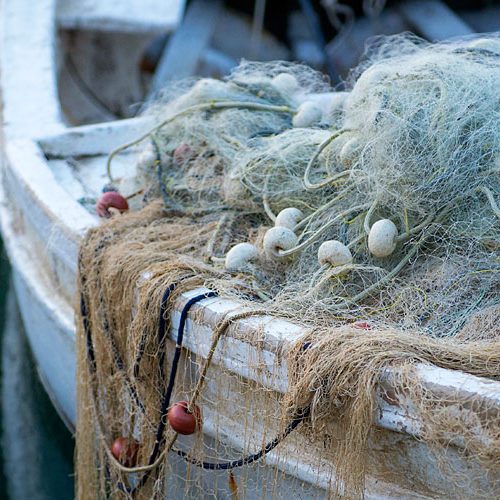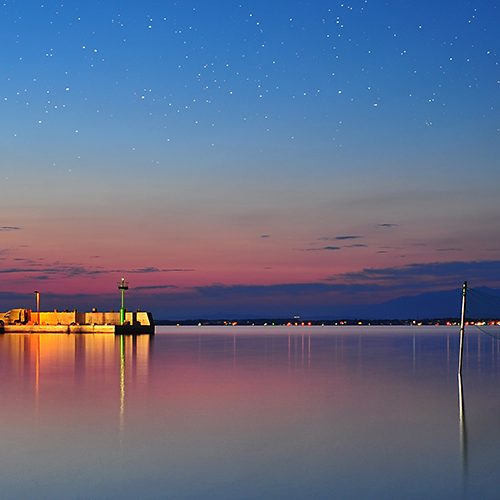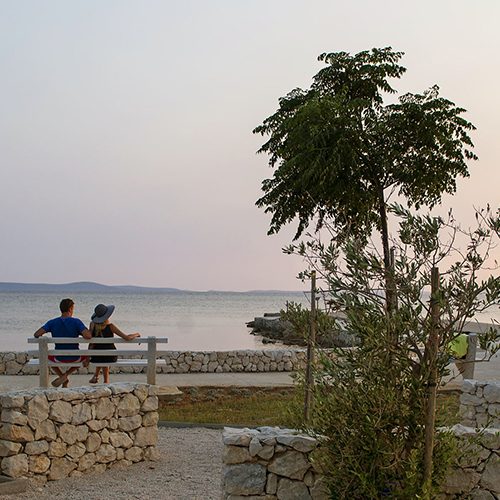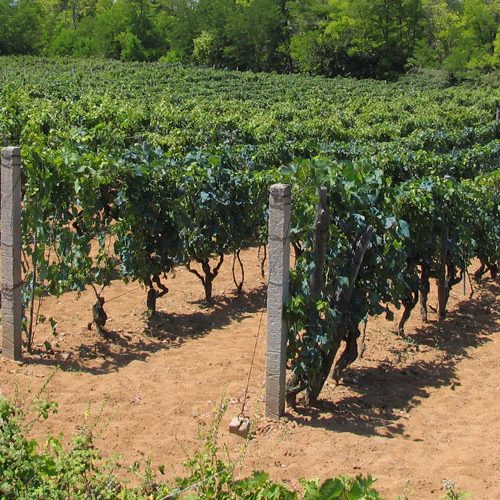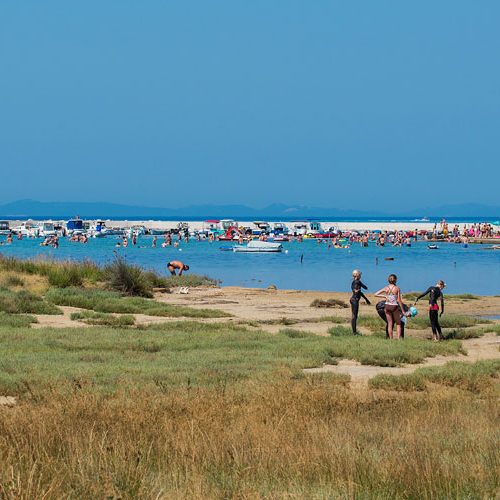SABUNIKE
Drenched in sunlight, surrounded by sea, enjoying the sound of seagulls and the scent of pines, on a large and sandy peninsula there lies the fishermen’s village and tourist destination of Sabunike.
This is the perfect destination for family holidays, with its long sandy beaches, crystal clear sea, numerous shallow-water sandy coves and medicinal mud. Sabunike has for many years been one of the top destinations for idyllic family holidays due to its ideal combination of beautiful sandy coves and the high quality accommodation on offer (especially its range of private beautifully furnished and well equipped apartments).
Its magnificent sunsets are one of the main tourist attractions, making this an ideal destination for a getaway in a relaxing and Mediterranean atmosphere.
Adrenalin lovers will be very at home here, with the surfing as well as the kite surfing on Sabunike beach, made possible by the bora, the strong wind blowing down from Velebit mountain. With the exception of Bol located on the island of Brač, Sabunike is the most famous surfing destination. Strolling along the promenade, you can enjoy the beautiful panoramic view of the sea and Velebit and take unforgettable photos or even have your own taken.
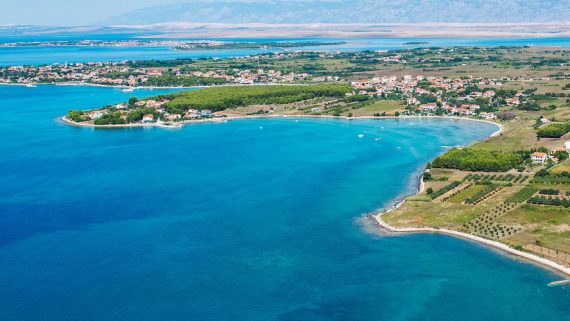
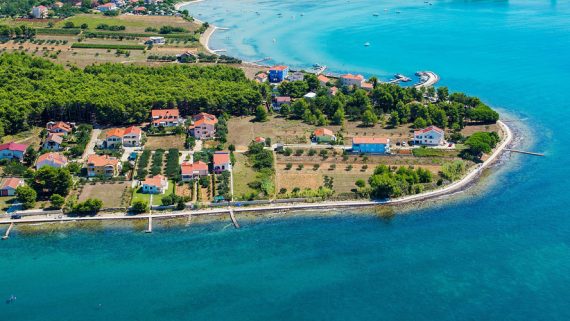
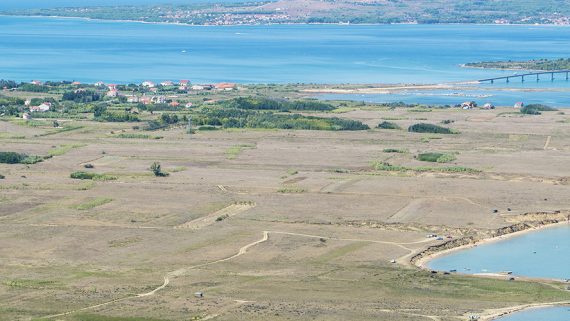
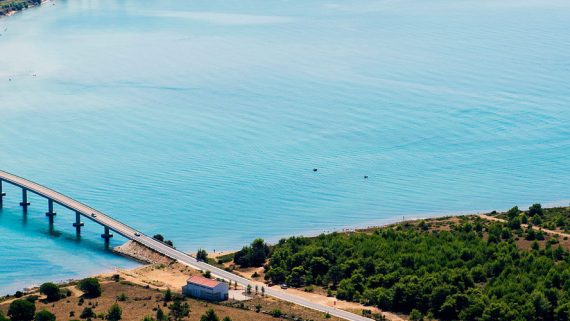
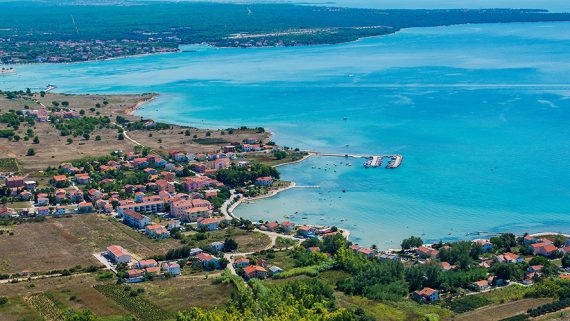
LOCATION AND CLIMATE
Privlaka is situated in the heart of northern Dalmatia, surrounded by the royal town of Nin to the north east and the Island of Vir to the north west. The proximity and influence of Zadar make it one of the most attractive coastal centres in Zadar County. The Privlaka peninsula is seven kilometres long and four kilometres wide.
Sabunike has a mild, Mediterranean climate with warm summers and mostly mild winters. The mistral wind blowing from the north makes summer days more pleasant and the heat more bearable. The bora, a typical winter wind blowing down from the mountain of Velebit, brings low, sometimes even sub-zero temperatures. The Sabunike region enjoys pleasant warm sunshine and sunny days, with over 2540 hours of sun a year. The sea temperature during the summer ranges from 25 to 27 degrees.

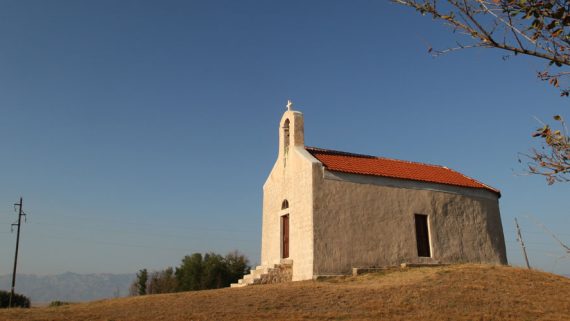
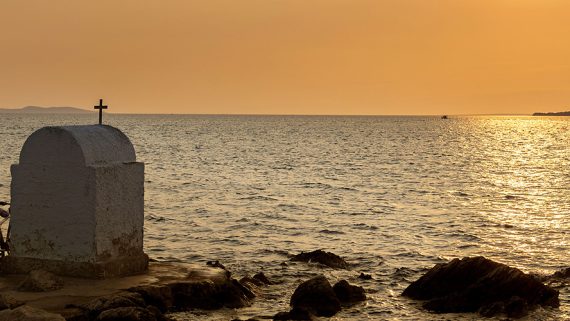
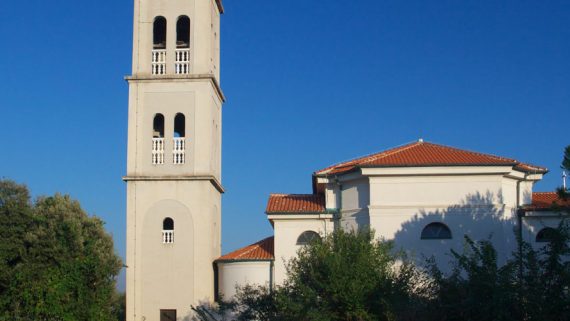

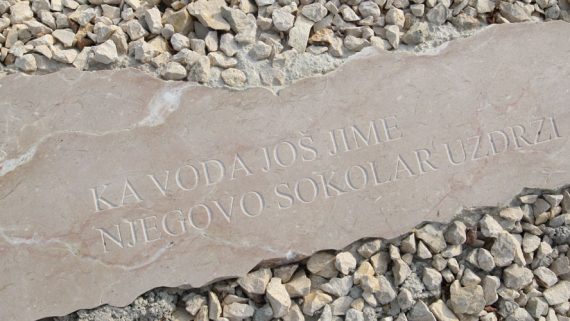
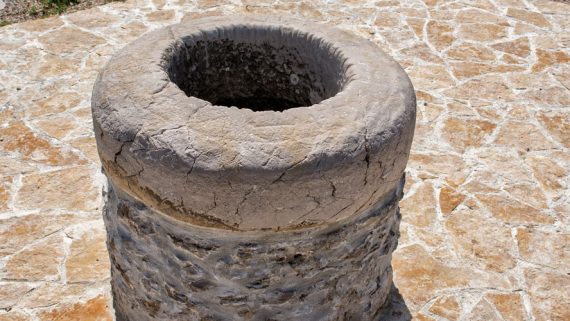
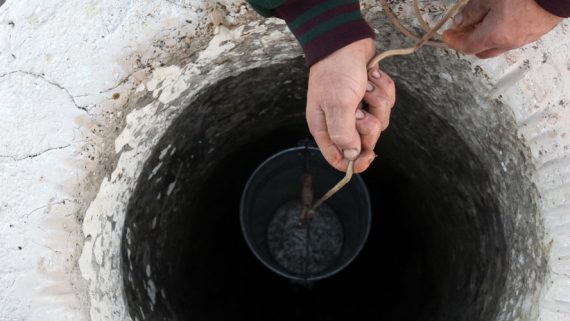
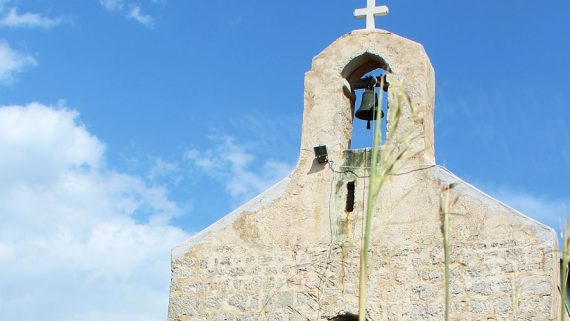
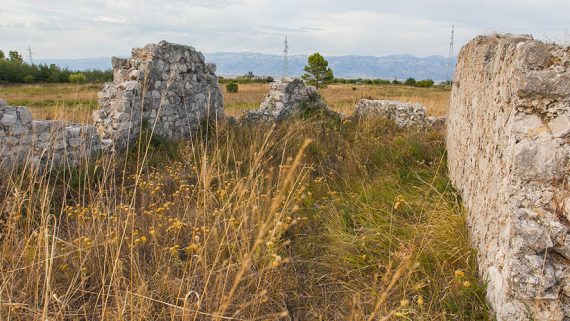
HYSTORY AND CULTURAL HERITAGE
The first written record of Privlaka dating back to 1296 mentions Privlaka as a winegrowing village. For generations Privlaka has been closely connected to the sea, navigation and fishing.
There are a number of ancient Christian monuments which are surrounded by fields under cultivation and unspoilt nature. Important sites dating back to the 14th century include the ruins of the Church of Saint Catherine and the Church of Saint Vitus, the patron saint of pharmacists, dancers and actors. The latter church is entirely preserved and holy mass is still held there today in June to celebrate the patron’s day. You can also visit the Church of Saint Barbara built during the Croatian War of Independence and the Parish Church of the Nativity of the Blessed Virgin Mary dating from the 19 century. This church is one of the most beautiful examples of classicism in architecture throughout Dalmatia.
In addition to its sacred sights, Privlaka has also preserved its water wells, once sources of water and life that bear witness to the hard life of peasants and fishermen and that hold many stories and secrets. Today twelve water wells are preserved, of which the most popular is the Sokolar’s well with its famous legend.

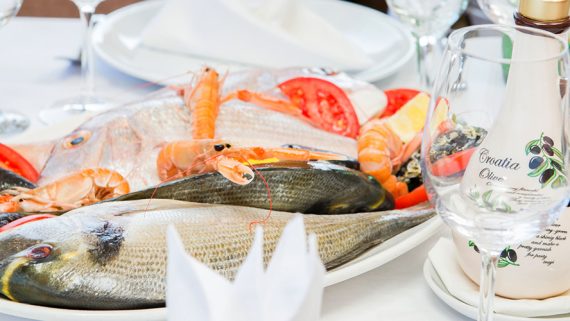
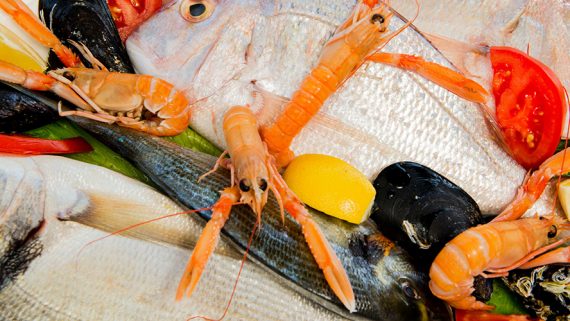
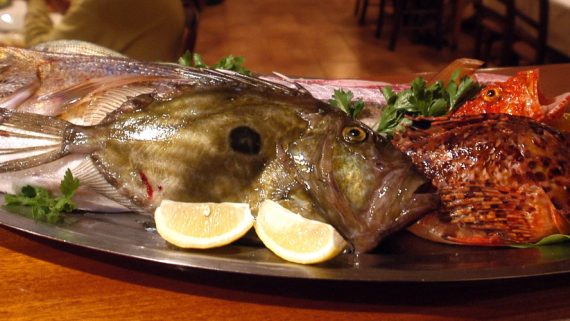
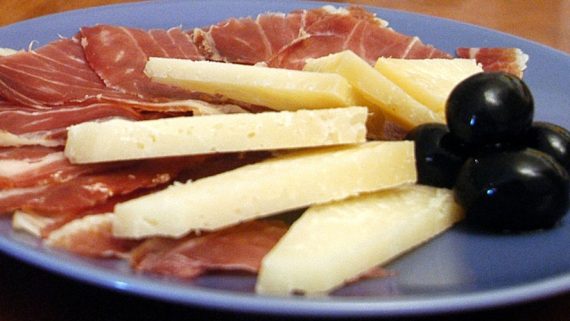
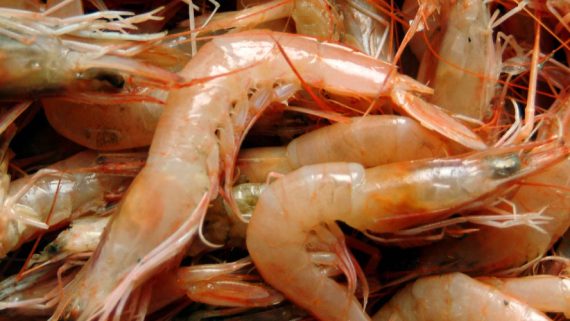
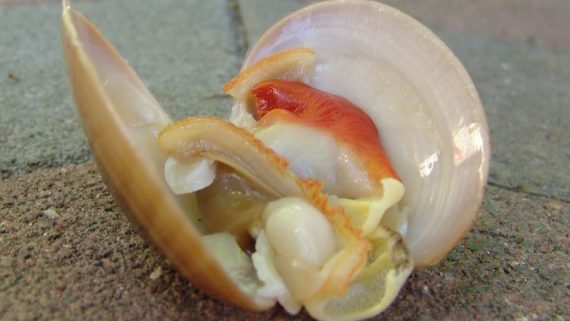
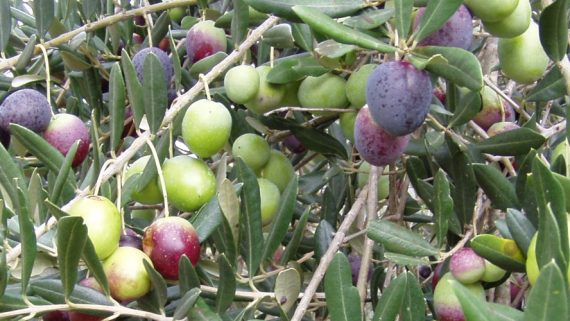
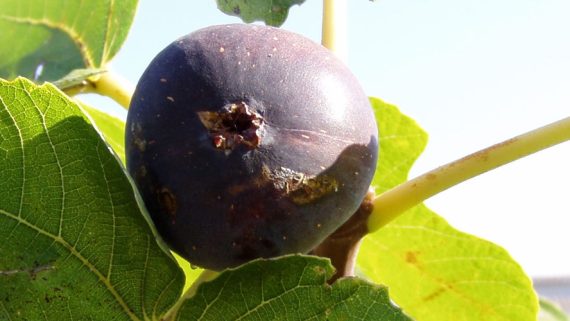
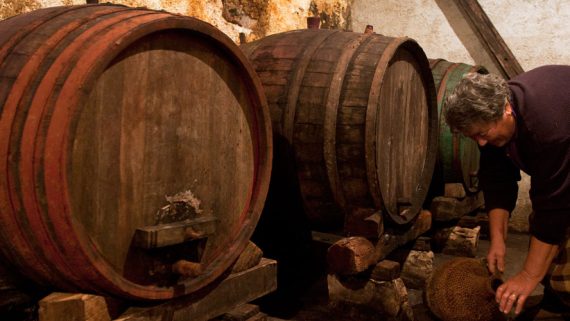
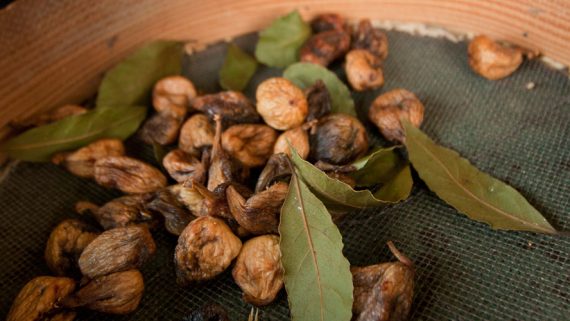
GASTRONOMY
The hard work of Privlaka’s fishermen mean the village has a fresh catch of fish each day.
Fish and seafood is the base of our local cuisine. Whether grilled, boiled or baked, there are fresh fish dishes for every gourmet’s palate. Fish, molluscs and Dalmatian prosciutto, olives, the famous Pag cheese and quality wines can be tasted in taverns and restaurants where you will be welcomed by friendly owners in a family atmosphere. Hardworking winegrowers offer local, quality wines typical of Privlaka.

